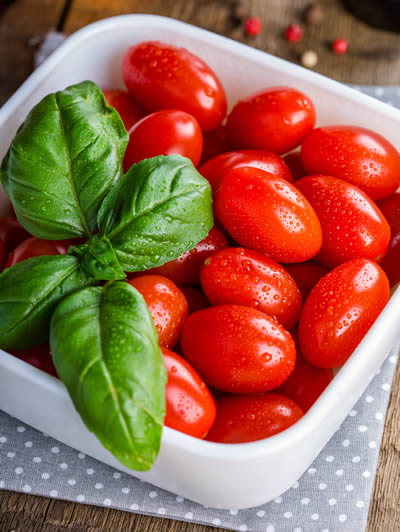Lycopene
Lycopene is a bright red carotene and carotenoid pigment found in tomatoes and other red fruits and vegetables, such as red carrots, watermelons and papayas (although not in strawberries or cherries). We have all heard about how tomatoes contain lots of anti-oxidants, well this is lycopene. Although lycopene is chemically a carotene, it has no vitamin A activity.
Numerous studies have found a positive relationship between dietary intake of lycopene, typically from tomatoes and watermelons and prostate cancer. Lycopene decreases systolic and diastolic blood pressure and reduced levels of lipid peroxidation products.
Recent studies show lycopene has roughly twice the power of beta-Carotene and 10 times the strength of Vitamin E, when it comes to protecting and healing our bodies from the damage of free radicals which are the cancer precursors. Watermelon is one of the unique sources having readily available cis-isomeric lycopene. Lycopene is effective in reducing the extent of cancer insurgence, cardiovascular disorders, diabetes and macular diseases.

Overall, lycopene ranges from 2.30-7.20 mg/100 g of fresh watermelon (there is no Recommended Dietary Allowance (RDA) for lycopene , but several studies suggested that 6-12 mg is an optimal intake). Half a medium watermelon has around 500g of edible red flesh. So half a watermelon will deliver a super dose of 11-36mg of lycopene. Half a watermelon has only 150 calories, it will also help with sateity (feeling full).
Lycopene from red fleshed watermelon is higher than a tomato.
- Watermelon 500g: 11-36mg lycopene.
- Medium tomato: 1-5mg lycopene.
- Tomato puree (1 tbsp): 13mg lycopene (puree is an excellent bioavailable source because processing liberates more lycopene from the plant's cells).
Male health
Scientific studies show that lycopene significantly greater volume of ejaculate and total number of sperm than in the control group. Lycopene is also be beneficial to prostate health.
Source: polipapers.upv.es, lycopene.com

